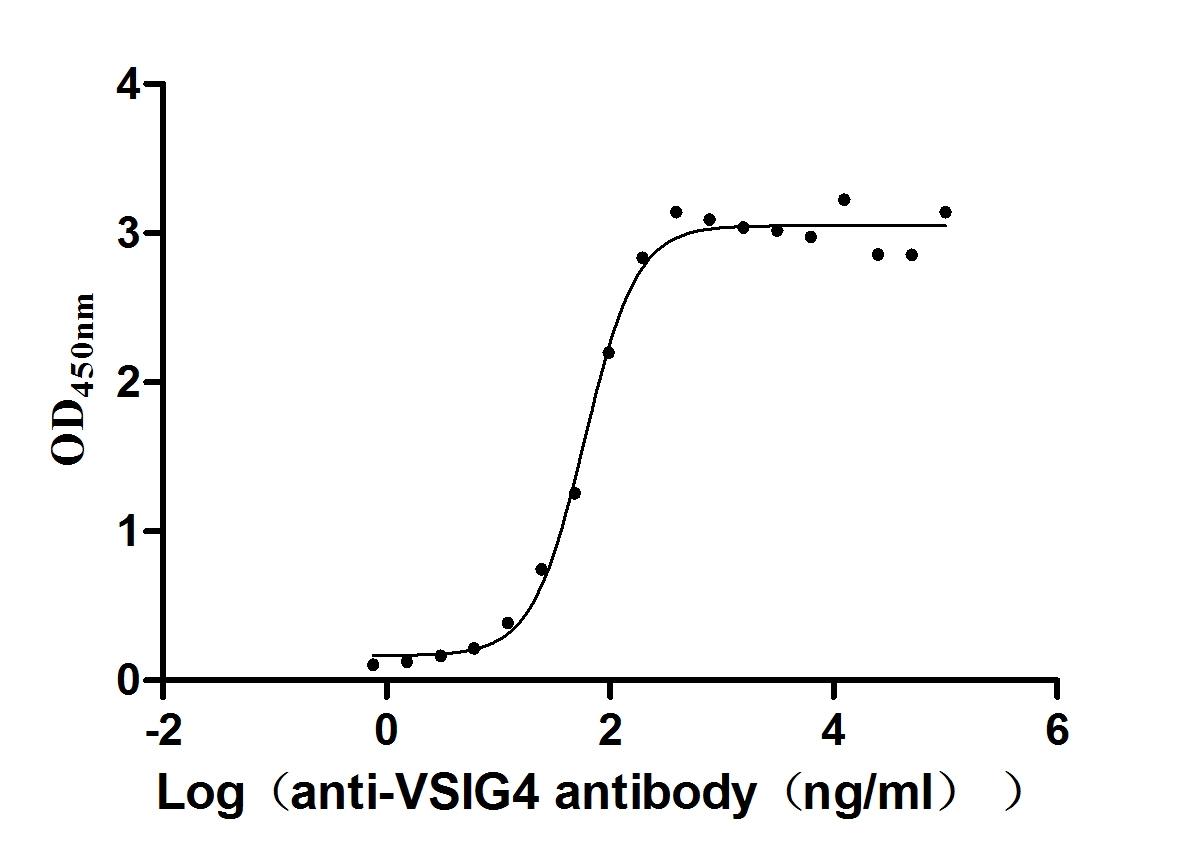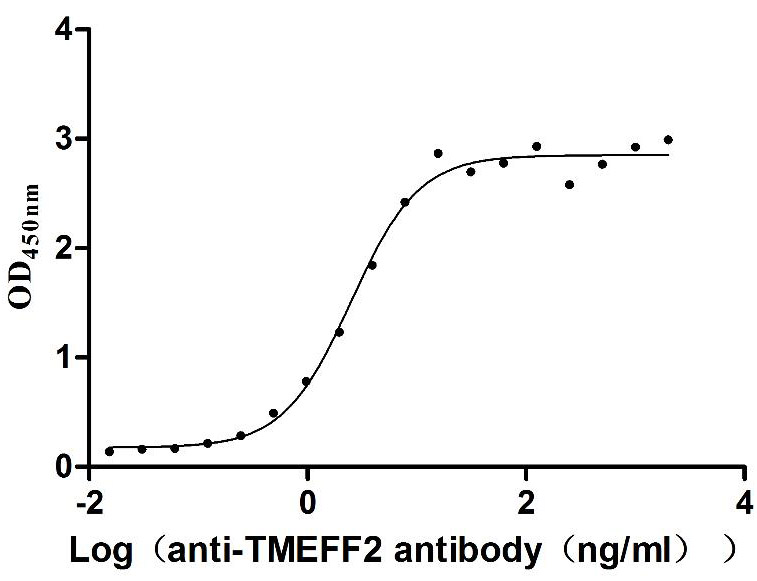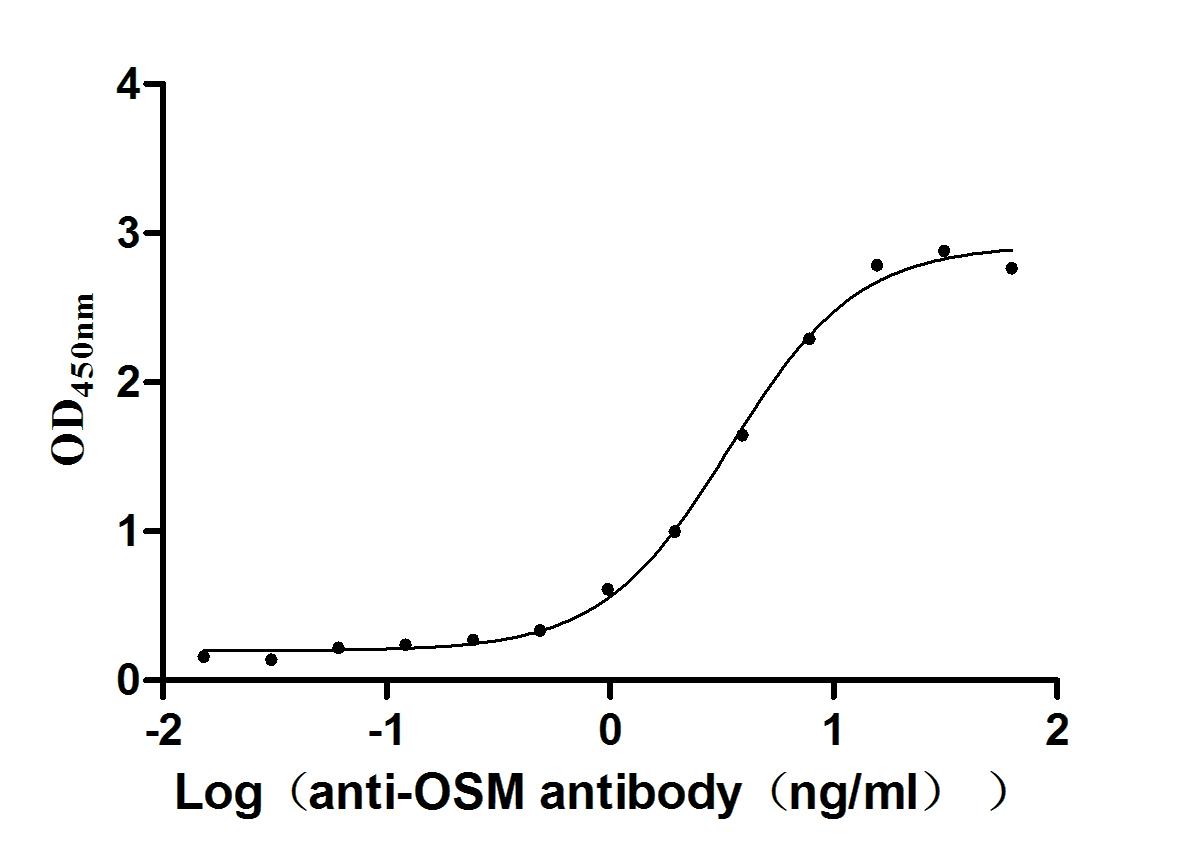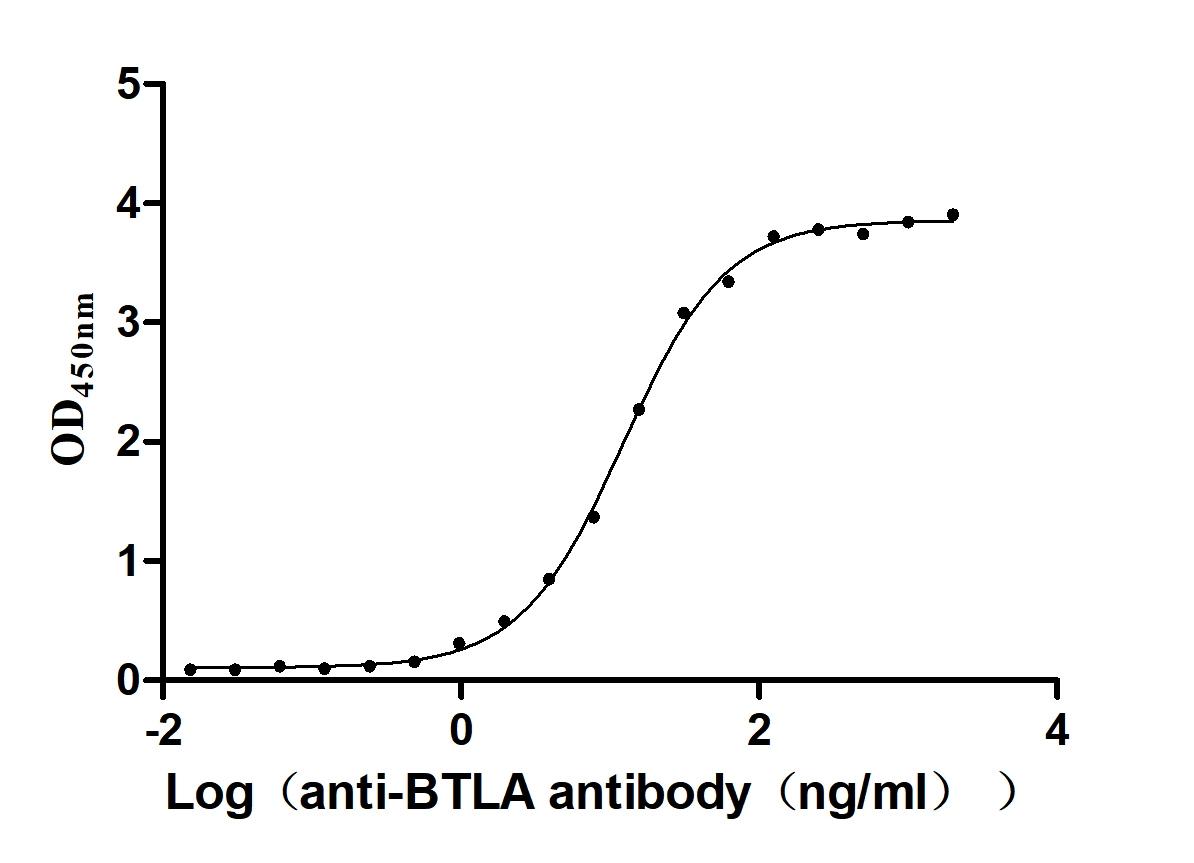Recombinant Mouse Fibroleukin (Fgl2)
-
货号:CSB-YP008654MO
-
规格:
-
来源:Yeast
-
其他:
-
货号:CSB-EP008654MO-B
-
规格:
-
来源:E.coli
-
共轭:Avi-tag Biotinylated
E. coli biotin ligase (BirA) is highly specific in covalently attaching biotin to the 15 amino acid AviTag peptide. This recombinant protein was biotinylated in vivo by AviTag-BirA technology, which method is BriA catalyzes amide linkage between the biotin and the specific lysine of the AviTag.
-
其他:
-
货号:CSB-BP008654MO
-
规格:
-
来源:Baculovirus
-
其他:
-
货号:CSB-MP008654MO
-
规格:
-
来源:Mammalian cell
-
其他:
产品详情
-
纯度:>85% (SDS-PAGE)
-
基因名:Fgl2
-
Uniprot No.:
-
别名:Fgl2; FiblpFibroleukin; Cytotoxic T-lymphocyte-specific protein; Fibrinogen-like protein 2; Prothrombinase
-
种属:Mus musculus (Mouse)
-
蛋白长度:Full Length of Mature Protein
-
表达区域:20-432
-
氨基酸序列V EEHNLTEGLE DASAQAACPA RLEGSGRCEG SQCPFQLTLP TLTIQLPRQL GSMEEVLKEV RTLKEAVDSL KKSCQDCKLQ ADDHRDPGGN GGNGAETAED SRVQELESQV NKLSSELKNA KDQIQGLQGR LETLHLVNMN NIENYVDNKV ANLTVVVNSL DGKCSKCPSQ EHMQSQPVQH LIYKDCSDHY VLGRRSSGAY RVTPDHRNSS FEVYCDMETM GGGWTVLQAR LDGSTNFTRE WKDYKAGFGN LEREFWLGND KIHLLTKSKE MILRIDLEDF NGLTLYALYD QFYVANEFLK YRLHIGNYNG TAGDALRFSR HYNHDLRFFT TPDRDNDRYP SGNCGLYYSS GWWFDSCLSA NLNGKYYHQK YKGVRNGIFW GTWPGINQAQ PGGYKSSFKQ AKMMIRPKNF KP
-
蛋白标签:Tag type will be determined during the manufacturing process.
The tag type will be determined during production process. If you have specified tag type, please tell us and we will develop the specified tag preferentially. -
产品提供形式:Lyophilized powder
Note: We will preferentially ship the format that we have in stock, however, if you have any special requirement for the format, please remark your requirement when placing the order, we will prepare according to your demand. -
复溶:We recommend that this vial be briefly centrifuged prior to opening to bring the contents to the bottom. Please reconstitute protein in deionized sterile water to a concentration of 0.1-1.0 mg/mL.We recommend to add 5-50% of glycerol (final concentration) and aliquot for long-term storage at -20℃/-80℃. Our default final concentration of glycerol is 50%. Customers could use it as reference.
-
储存条件:Store at -20°C/-80°C upon receipt, aliquoting is necessary for mutiple use. Avoid repeated freeze-thaw cycles.
-
保质期:The shelf life is related to many factors, storage state, buffer ingredients, storage temperature and the stability of the protein itself.
Generally, the shelf life of liquid form is 6 months at -20°C/-80°C. The shelf life of lyophilized form is 12 months at -20°C/-80°C. -
货期:Delivery time may differ from different purchasing way or location, please kindly consult your local distributors for specific delivery time.Note: All of our proteins are default shipped with normal blue ice packs, if you request to ship with dry ice, please communicate with us in advance and extra fees will be charged.
-
注意事项:Repeated freezing and thawing is not recommended. Store working aliquots at 4°C for up to one week.
-
Datasheet :Please contact us to get it.
相关产品
靶点详情
-
功能:Converts prothrombin to thrombin.
-
基因功能参考文献:
- These results indicated that FGL2 might be a promising target for attenuating the severity of Severe acute pancreatitis (SAP) and adenovirus-mediated artificial miRNAs targetting FGL2 represented a potential therapeutic approach for the treatment of SAP. PMID: 29054965
- The results of the present study indicated that, in the colitis model, FGL2 was associated with the immunopathogenesis of inflammatory bowel disease. PMID: 28713999
- FGL2-overexpressing regulatory T-cells have enhanced immunosuppressive activity and prevent colitis; FGL2-over-expressing effector T-cells are hypo-proliferative and do not induce colitis PMID: 28487604
- PD-1 plays a vital role in brain inflammation via regulation of Fgl-2 after ICH, and that manipulation of PD-1 might be a promising therapeutical target in ICH. PMID: 27717876
- In vitro IL-33 treatment abrogated MHV-3 and IFN-gamma induced FGL2 expression in RAW264.7 and THP-1 cells. PMID: 28494352
- FGL2 appears as one of the key players in immune regulatory processes favoring metacestode survival by promoting Regulatory T-cell activity and IL-17A production that contributes to FGL2-regulation. PMID: 25955764
- these data strongly suggest that Treg cells expressing FGL2 mediate rapamycin-induced tolerance. Furthermore, a gene biomarker panel that includes fgl2 can distinguish between rejecting and tolerant grafts. PMID: 24990517
- Mouse susceptibility to MHV-3-induced fulminant hepatitis may rely on C5a/C5aR interactions, for which ERK1/2 and p38 pathways participate in up-regulating Fgl2 expression. PMID: 24604562
- Targeted deletion of FGL2 leads to increased early viral replication and enhanced adaptive immunity in a murine model of acute viral hepatitis. PMID: 24146739
- Cysteines at positions 94, 97, 184 and 187, found in the coiled-coil domain were shown to be crucial for FGL2 oligomerization. PMID: 23127799
- FGL2 binding to the FcgammaRIIB receptor expressed on sinusoidal endothelial cells (SECs) is a critical event in the initiation of the hepatic reperfusion injury cascade through induction of SEC and hepatocyte death. PMID: 21756857
- The prothrombinase activity of FGL2 contributes to the pathogenesis of experimental arthritis. PMID: 21469939
- Fgl2 cleaves prothrombin to thrombin consistent with serine protease activity and requires calcium, phospholipids, and factor Va for its full activity. PMID: 11994472
- While membrane-bound Fgl2 acts as a prothrombinase, soluble Fgl2 is an immunomodulatory protein that has the ability to modulate T cell responses and to alter dendritic cell (DC) maturation to favor production of tolerogenic DC. PMID: 12682232
- fgl2 expression in endothelial cells is controlled by Ets-1 and Oct-1, and requires Sp1 and Sp3 PMID: 12752447
- Fgl2 is required for lipopolysaccharide-triggered abortions and for normal mouse reproduction. PMID: 14742694
- Fgl2-deficient and control mice produce similar levels of fibrin, a product of the coagulation cascade, during T. gondii infection and allograft rejection. PMID: 14976252
- Fgl2 is constitutively absent at baseline in vascular endothelial cells (ECs) of fgl2+/- murine hearts, but is induced in vascular ECs of mouse-to-rat cardiac xenografts undergoing acute vascular rejection with thrombosis. PMID: 15100314
- Fgl2 expression accounts for the fibrin deposition seen in experimental cardiac allograft rejection; these data provide a rationale for targeting fgl2 as adjunctive therapy to treat allograft rejection. PMID: 15905589
- Results suggest that virus-induced fibrinogen-like protein 2 prothrombinase/fibroleukin expression and associated coagulation activity play a pivotal role in initiating severe hepatitis. PMID: 16437596
- FGL2 has a role in susceptibility to mouse hepatitis virus (MHV-3)-induced fulminant hepatitis PMID: 17037572
- Fgl2 deficiency is not associated with obvious structural cardiac defects but is associated with a high incidence of neonatal death as well as contractile dysfunction and rhythm abnormalities during embryonic and postnatal development in mice PMID: 17550996
- FGL2 contributes to Treg cell activity and inhibits the development of autoimmune disease. PMID: 18097026
- FGL2 is an important effector cytokine of egulatory T cells that contributes to susceptibility to mouse hepatitis virus strain 3 induced fulminant viral hepatitis. PMID: 19085958
显示更多
收起更多
-
亚细胞定位:Secreted.
-
组织特异性:Constitutively expressed in cytotoxic T-cells.
-
数据库链接:
KEGG: mmu:14190
STRING: 10090.ENSMUSP00000046131
UniGene: Mm.292100
Most popular with customers
-
Recombinant Human ICOS ligand (ICOSLG), partial (Active)
Express system: Mammalian cell
Species: Homo sapiens (Human)
-
Recombinant Human Heat-stable enterotoxin receptor (GUCY2C), partial (Active)
Express system: Mammalian cell
Species: Homo sapiens (Human)
-
Recombinant Human Angiopoietin-2 (ANGPT2) (Active)
Express system: Mammalian cell
Species: Homo sapiens (Human)
-
Recombinant Human V-set and immunoglobulin domain-containing protein 4 (VSIG4), partial (Active)
Express system: Mammalian cell
Species: Homo sapiens (Human)
-
Recombinant Human Tomoregulin-2 (TMEFF2), partial (Active)
Express system: Mammalian cell
Species: Homo sapiens (Human)
-
Recombinant Human Oncostatin-M (OSM), partial (Active)
Express system: Mammalian cell
Species: Homo sapiens (Human)
-
Recombinant Human B- and T-lymphocyte attenuator(BTLA), partial (Active)
Express system: Mammalian cell
Species: Homo sapiens (Human)
-
Recombinant Human Dipeptidase 3(DPEP3), partial (Active)
Express system: Mammalian cell
Species: Homo sapiens (Human)


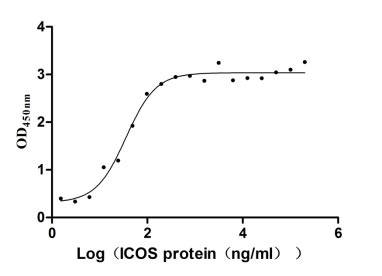
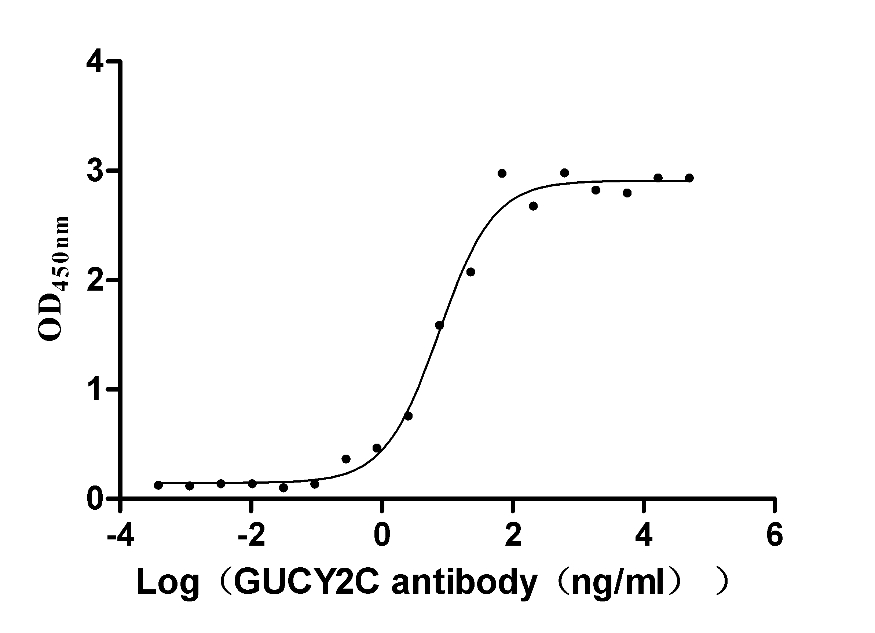
-AC1.jpg)
